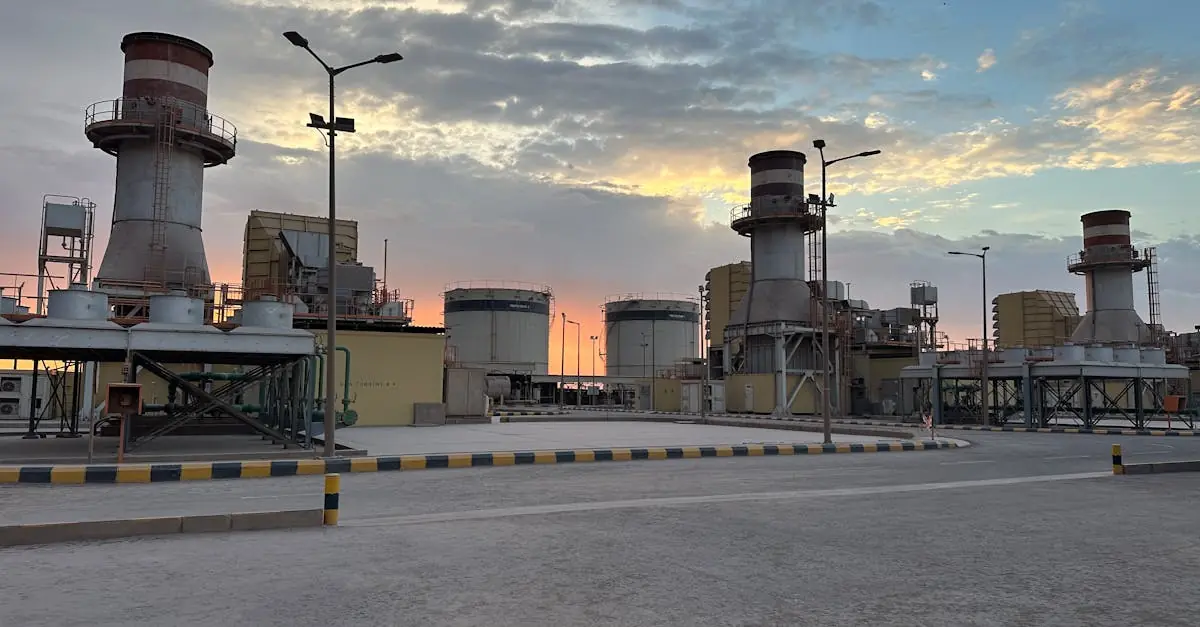The hospitality industry is evolving faster than a chef can whip up a soufflé. With guests becoming more discerning and technology taking center stage, staying ahead of the curve is key. From eco-friendly practices to personalized guest experiences, the latest trends are shaking things up in ways that could make even the most seasoned hotelier raise an eyebrow.
Imagine a world where robots check you in, and your room knows your coffee preference better than your best friend. It’s not just a fantasy; it’s the future of hospitality. As businesses adapt to these changes, they’re not just serving guests—they’re crafting unforgettable experiences. Buckle up as we dive into the latest trends that are redefining what it means to be hospitable in today’s fast-paced world.
Table of Contents
ToggleOverview of Latest Trends in Hospitality Industry
The hospitality industry is witnessing significant shifts in response to evolving guest preferences. Eco-friendly practices are gaining momentum, with many establishments implementing sustainable initiatives. This trend includes using renewable energy sources, reducing water consumption, and minimizing waste through recycling programs.
Personalized guest experiences have become a priority for many hotels. Tailoring services based on individual preferences enhances customer satisfaction. Many properties now utilize data analytics to understand guest behaviors and offer customized recommendations, ensuring a unique stay.
Technology integration continues to reshape the industry. Mobile check-ins streamline the arrival process, enabling guests to bypass the front desk. Smart room technologies, equipped with voice-activated controls and customizable settings, offer convenience and comfort during stays.
Remote work trends are influencing hospitality offerings. Many business travelers now seek accommodations that facilitate work, featuring dedicated office spaces and high-speed internet access. Subsequently, hotels are redesigning layouts to cater to this demand.
Health and safety measures remain critical. Enhanced cleaning protocols are standard, with many hotels adopting contactless services to minimize physical interactions. Guests increasingly prioritize properties that demonstrate a commitment to their well-being.
Lastly, experiential travel is on the rise. Guests look for immersive activities that connect them to local cultures and communities. Hotels are partnering with local businesses to curate unique experiences, enhancing the overall value of their offerings.
Technological Innovations
Technological innovations shape the hospitality industry, enhancing guest experiences and operations.
Contactless Services
Contactless services gained prominence during the pandemic, becoming essential for health and safety. Guests benefit from mobile check-ins, allowing them to bypass front desk interactions. Payment systems now support contactless transactions, streamlining payments. Staff members use tablets to manage orders and requests, reducing physical contact further. Hotels prioritize these technologies to meet evolving guest expectations and enhance convenience, ensuring safe interactions.
Smart Room Features
Smart room features revolutionize the guest experience by creating personalized environments. Automated lighting adjusts to guest preferences, enhancing comfort throughout their stay. Room controls enable guests to manage temperature and entertainment with their smartphones. Voice-activated assistants provide convenient access to hotel services and information. These innovations not only elevate comfort but also increase energy efficiency, aligning with sustainable practices in hospitality.
Sustainability Practices
Sustainability practices in the hospitality industry are becoming essential for meeting guest expectations. Hotels increasingly focus on eco-friendly initiatives and waste reduction strategies to minimize their environmental impact.
Eco-Friendly Initiatives
Hotels prioritize renewable energy sources, such as solar panels and wind turbines, to reduce their carbon footprints. Many properties also implement energy-efficient systems, like LED lighting and smart thermostats, to enhance sustainability. Water conservation measures, including low-flow fixtures and rainwater harvesting systems, are commonly adopted. Green certifications, like LEED and Green Key, help hotels showcase their commitment to the environment. Offering organic and locally sourced food options creates a positive impact on both health and local economies.
Waste Reduction Strategies
Waste reduction strategies play a significant role in sustainable hospitality. Hotels adopt recycling programs to minimize waste sent to landfills, ensuring responsible disposal of materials. Implementing composting initiatives for organic waste drastically lowers waste generation. Many establishments support the use of reusable containers for in-room dining, helping cut down on single-use plastics. Donation programs for leftover food extend hospitality’s reach into the community while preventing food waste. Staff training on sustainable practices fosters a culture of environmental responsibility throughout hotel operations.
Customer Experience Enhancements
Guest experience remains a primary focus in the hospitality industry, driving innovations that cater to individual needs.
Personalization Trends
Data analytics empowers hotels to tailor offerings for each guest. Many properties leverage guest preferences gathered from past stays, effectively customizing everything from room settings to dining options. Personalized communications enhance engagement, while targeted marketing strategies promote special deals aligned with individual tastes. Guests benefit from curated experiences, allowing them to enjoy seamless interactions throughout their stay. Advanced technology like mobile apps enhances personalization further, providing users with instant access to services such as room service and concierge support. These trends emphasize the importance of meeting distinct guest expectations.
Wellness and Wellbeing Focus
Health and wellness initiatives have gained significant traction within the hospitality sector. Hotels increasingly incorporate wellness programs, offering services such as yoga sessions and spa treatments for relaxation and rejuvenation. Enhanced nutritional options feature local, organic ingredients that contribute to healthier dining experiences. Many establishments provide fitness facilities, ensuring guests maintain regular workout routines during their travels. Mental wellbeing also garners attention, with mindfulness programs and quiet zones enhancing the overall experience. This commitment to wellness reflects a broader trend focusing on holistic guest satisfaction, providing a comprehensive approach to comfort and health.
Marketing Strategies
Marketing strategies in the hospitality industry adapt to emerging trends and technology. Businesses enhance their outreach and engagement through innovative approaches.
Social Media Optimization
Social media platforms play a crucial role in marketing. Many hotels create visually appealing content to attract potential guests. Engaging with audiences through stories and posts fosters a sense of community. Popular platforms like Instagram and Facebook allow hotels to share authentic experiences, showcasing unique features and amenities. Consistent posting helps maintain visibility and relevance.
Engagement metrics drive content decisions, allowing properties to refine their strategies based on performance. Utilizing paid advertising on these platforms maximizes reach and targets specific demographics, enhancing overall effectiveness.
Influencer Collaborations
Collaborating with influencers has become a powerful marketing tool. Influencers possess established trust with their followers, making their endorsements highly effective. Hotels partner with both micro and macro influencers to broaden their appeal and reach varied audiences.
These partnerships often result in authentic travel content, showcasing real experiences that resonate with potential guests. monitoring engagement and follower growth ensures that these collaborations yield results. Creative campaigns that include exclusive offers for followers further enhance visibility and interest in the hotel’s offerings.
The hospitality industry is undergoing a significant transformation driven by evolving guest expectations and technological advancements. Embracing eco-friendly practices and personalizing guest experiences are no longer optional; they’re essential for staying competitive.
As hotels adapt to the rise of remote work and prioritize health and safety, the integration of smart technologies will continue to enhance the guest experience.
By focusing on sustainability and leveraging data analytics, the industry is poised to create memorable and meaningful interactions.
Ultimately, these trends signal a promising future where innovation and guest satisfaction go hand in hand, setting new standards for excellence in hospitality.





